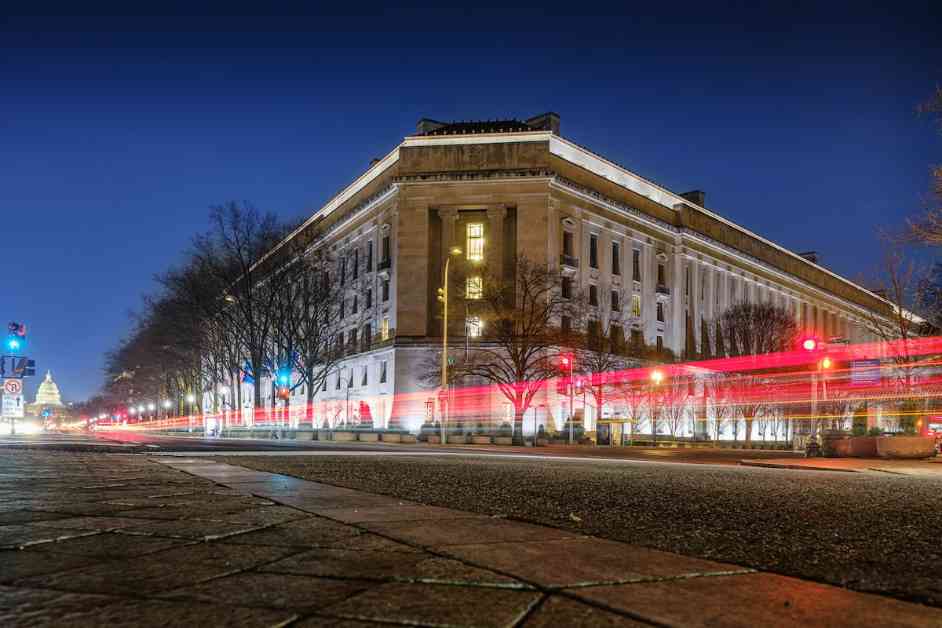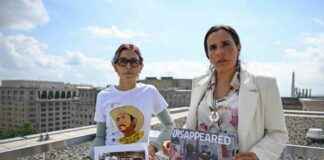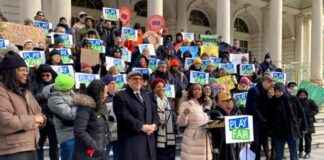The bustling traffic along Pennsylvania Avenue paints a vivid backdrop against the Department of Justice headquarters building in Washington, D.C. on a crisp January evening. Amidst this urban landscape, a significant event unfolded that has captured national attention—the resignation of Denise Cheung, the top criminal prosecutor at the United States Attorney’s Office in Washington, D.C. This news has sent shockwaves through the legal and political spheres, shedding light on the inner workings of the justice system and the delicate dance between politics and law enforcement.
A Seasoned Prosecutor’s Dilemma
Denise Cheung, a seasoned prosecutor with a long-standing career at the Department of Justice, found herself at a crossroads when faced with a challenging decision. Tasked with initiating a grand jury investigation into a Biden administration EPA funding decision, Cheung was confronted with a moral and legal dilemma. A directive from a Trump-appointed superior at the U.S. Environmental Protection Agency (EPA) called for an investigation into the funding decision and a subsequent freeze on the allocated funds.
Despite the pressure from her superiors, Cheung stood firm in her conviction that there was insufficient evidence to warrant such an investigation. This principled stance led to a pivotal moment in her career, culminating in her resignation from the esteemed position she held within the U.S. Attorney’s Office. In her poignant resignation letter, Cheung articulated her commitment to upholding the law, ethical standards, and her sworn oath of office—a testament to her unwavering dedication to justice.
The Clash of Political Agendas
The underlying cause of Cheung’s resignation stemmed from a contentious dispute surrounding EPA funding allocated for climate change mitigation projects under the Inflation Reduction Act. EPA Administrator Lee Zeldin raised concerns about the expedited funding process, citing the need for a thorough review of the allocated funds. This sparked a chain of events that pitted political agendas against legal integrity, setting the stage for a high-stakes showdown within the Department of Justice.
As the political landscape shifted and tensions mounted, Cheung found herself caught in the crossfire of conflicting interests. The clash between the outgoing Trump administration’s directives and the incoming Biden administration’s policies created a volatile environment where legal decisions were clouded by partisan agendas. Cheung’s steadfast refusal to compromise her principles in the face of political pressure underscored the delicate balance between law enforcement and political influence—a battle that continues to play out in the corridors of power.
A Call for Integrity and Justice
Cheung’s departure serves as a poignant reminder of the challenges faced by prosecutors striving to uphold the rule of law in a politically charged environment. Her courageous stand against undue influence and her unwavering commitment to justice exemplify the core values that underpin the legal system. As she bids farewell to her colleagues, Cheung’s parting words resonate with a sense of duty and honor, urging her fellow prosecutors to remain steadfast in their pursuit of justice without fear or prejudice.
In a time of uncertainty and upheaval, Cheung’s principled stance stands as a beacon of integrity and moral courage in the face of adversity. Her resignation may mark the end of a chapter in her illustrious career, but it serves as a powerful testament to the enduring values that define the pursuit of justice in a complex and ever-evolving world. As the legal landscape continues to shift and evolve, Cheung’s legacy will endure as a reminder of the unwavering commitment to upholding the principles of law and justice in the face of formidable challenges.














